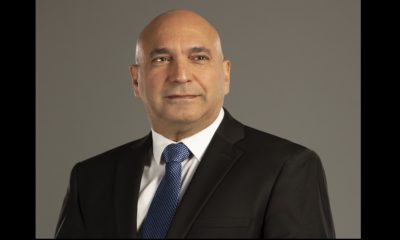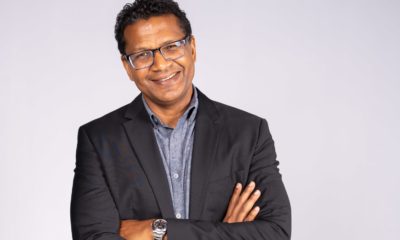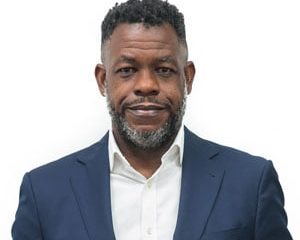Christopher Levy has been learning the business literally from the ground up

At 68, Robert assumed a new role as chairman of Jamaica Broilers' board. "Mr R Levy will be the chairman of the company and his input into the direction will continue," said Christopher.
since he was a teenager, and now it is his turn to run the five-decade-old Jamaica Broilers Group, over which his father Robert Levy has majority control and has imprinted his personality as a strong and steady operation, but flexible enough to adjust to changing circumstances.

Christopher Levy has been learning the business literally from the ground up since he was a teenager, and now it is his turn to run the five-decade-old Jamaica Broilers Group, over which his father Robert Levy has majority control and has imprinted his personality as a strong and steady operation, but flexible enough to adjust to changing circumstances.
Christopher has now taken over as president and chief executive officer of the expanded poultry group, which now has energy thrown in, but is planning to maintain the course his father has set for the company that was founded back in 1958.
“I do not anticipate any significant change in direction of the company at this time,” the younger Levy told the Financial Gleaner. Christopher has for years been working alongside his father at the company as board director, currently senior vice-president in charge of operations and head of the nascent and highly lucrative energy company, JB Ethanol Limited.
Indeed, that relationship will continue in some form, but this time Christopher will be answerable to the elder Levy in a different capacity. At 68, Robert assumed a new role as chairman of Jamaica Broilers’ board. “Mr R Levy will be the chairman of the company and his input into the direction will continue,” said Christopher.
Prior to Robert Levy’s departure however, the Group generated Revenues of $20.44 billion as at 3 May 2008, a 77% increase over the previous year. (The company’s year end is the last Saturday in April). Net Profits for the same period grew to $740.3 million, a 44.5% year over year increase. EPS for the financial year amounted to $0.61 compared with $0.42 for the year ended April 2007. The Group paid out just over $155.9 million in dividends compared with $$137.9 million the previous year.
Robert Levy joined Jamaica Broilers at age 19 in 1959, one year after the official formation of the company. During his first year at Jamaica Broilers, he fast-tracked his knowledge of the operation by working in three key areas: the Field Department, the Hatchery and the Processing Plant. By 1978, he had assumed the critical post of Director of Development, putting him in charge of directing the company towards becoming a model, vertically-integrated entity that would take its place as one of the Caribbean’s leading agro-industrial organizations.
After being appointed to the post of joint CEO in 1994, Robert Levy assumed the position of President and CEO of the Jamaica Broilers Group of Companies in 2001. During his tenure, the Group realized significant increase in profits and, in the more recent past when the Group expanded into the production of ethanol, Jamaica Broilers Group Ltd. also saw substantial growth in its operations.
The new Jamaica Broilers Group Chairman is a graduate of the Harvard Business School, where he completed the Owner/President Management Programme. He received his earlier education at DeCarteret College and Jamaica College.
Robert Levy, an excellent communicator, is able to speak as effectively with farmers, who are pivotal to the success of his business, as he can with leaders in both the private and public sectors. This ability comes from an innate love of people – a love that is rooted in his strong belief in God. Known for his philanthropy, Robert Levy believes his organization is blessed and this serves as the driving force behind his desire to give back to society.
He has transformed the company from a small family business to a processing plant of first world standard, producing chicken, beef and fish products for Jamaica and the Caribbean. With locations in St. Catherine, St. Ann and St. Elizabeth, the sky continues to be the limit for the company and its ‘Best Dressed’ products.
Father Levy in a Financial Gleaner interview appeared tickled by the fact that his oldest son would be continuing his legacy, recalling with a chuckle how Christopher was initiated into the company.
“He started from he was 15 years old,” he said. “And his first jobs were to go out and catch chickens at the farmer’s place. So, Christopher has been right through the full operation, all aspects of it.”
But Christopher really proved he was ready to take over when he spearheaded JB Ethanol, a 16-month operation which contributed $6 billion or 67 per cent of new revenue generated in the year ended May 3.
“He earned a level of respect from all of us (when) he put the ethanol operations in place, on time and on budget, and it has been very successful for us,” Levy said. “We have every reason to believe that it will continue to be successful.”
The energy company has had its hiccups, however. A month or two into start up, Christopher flew to Paris to negotiate a settlement with JB Ethanol’s supplier of wet ethanol who had defaulted on the contract. The company had not named the supplier, but it had at the time a 50 million gallon contract with Bauche Energy.
Levy secured US$1.45 million in compensation or 75 per cent of the loss the company had projected.
But the problems with that contract led to another big problem in Jamaica for the company whose senior executives were summonsed before regulators to explain certain sale of shares by senior executives around the time the company reported to the market that it anticipated losses because of the contract default. Both the Jamaica Stock Exchange and Financial Services Commission cleared the poultry company. Since then, no other problems have emerged.
“With the current financial situation world-wide and the challenging times projected for Jamaica and the world as a whole, we feel that it is important to be in a mode of tight fiscal management, pru-dence in our decisions and working to improve our profitability. As to any expansion projects at this time, our main focus is the returns from ethanol,” the president-in-waiting told the Financial Gleaner.
Christopher takes over a company that is financially sound and profitable whose business covers poultry, livestock, animal feeds, aqua-culture, and energy. For the year ended May 3, 2008, group turnover rose to J$20.4 billion from J$11.5 billion, on the back of higher than anticipated ethanol sales. Net profit rose from half a billion dollars to $740 million.
Robert attributes this growth to the combined effort of team members, some of whom has been with the company 15 years and over.
“I feel that the team that has been around me has been the most rewarding thing, it is great when you have no internal politics in the operations,” he told the Financial Gleaner. “So many companies run with serious challenges in the company … we have been through a period of time that has been so exciting to come to work because you are not facing those personal challenges.”
The senior team comprises Ian Parsard as head of finance; Don Patterson, accountant; Peter DePass, company secretary; Conley Salmon and David Mair, marketing; Claudette Cooke, human resources; and Leon Headley, procurement.
The senior Levy is a man of faith committed to Christian principles, and those beliefs have helped shape his management style. Married to Judy since 1964 they have four children – Christopher, Wendy, Amanda and Stephen.
His son now says that the team Robert built is possibly one of his best legacies, a comment that also gives some insight into how the younger Levy intends to govern the company he inherits.
“I think Mr Levy has made several significant contributions over the years. He has built a tremendous team that leads and manages JBGL; I am fortunate to inherit this momentum,” said Christopher.
“Also, he has built a very strong culture based on biblical principles that form the foundation of our decision-making. He has also created tremendous wealth for many Jamaicans over the years.”

 Businessuite Markets2 weeks ago
Businessuite Markets2 weeks ago
 Businessuite News242 weeks ago
Businessuite News242 weeks ago
 Leadership Conversations5 days ago
Leadership Conversations5 days ago
 Businessuite Markets2 weeks ago
Businessuite Markets2 weeks ago
 Logistics & Transportation2 weeks ago
Logistics & Transportation2 weeks ago
 Businessuite Markets2 weeks ago
Businessuite Markets2 weeks ago
 Businessuite News24 International3 weeks ago
Businessuite News24 International3 weeks ago
 Businessuite Markets2 weeks ago
Businessuite Markets2 weeks ago










